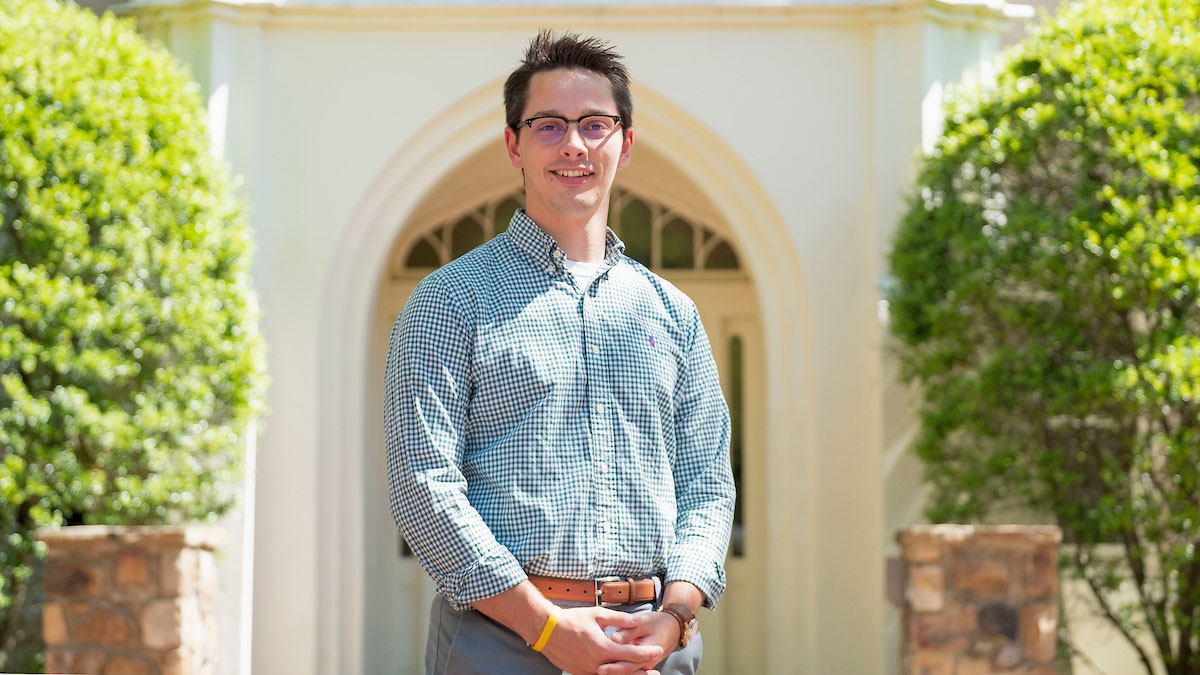Globetrotting Tar Heel
During his four years at Carolina, Jacob Stocks went from not having a passport to having one stamped in Spain, Mexico and Ghana.

When Jacob Stocks came to UNC-Chapel Hill in 2014, he was looking to experience more than Chapel Hill. He was ready to experience the world, and he knew the University could provide him the opportunity.
The Greenville, North Carolina-native had never been outside of the United States, but loved to travel — he once crossed the Mississippi River just so he could say that he had.
“When I saw the various opportunities Carolina had to offer, I couldn’t say no,” said Stocks, who will graduate on May 14 at Kenan Stadium alongside nearly 4,000 of his classmates.
‘A full circle of support’
Stocks didn’t have a passport when he arrived on campus. He has one now and it has stamps from Spain, Mexico and Ghana.
The biology major, who minored in chemistry and Spanish for the professions, was able to travel to so many places because of the support he received here. Programs like Passport to GO!, which provides funding for first-year or transfer students to obtain their first passports, made it possible. Other programs he credits include GO! Global Orientation, the study abroad office and the FedEx Global Center.
“It’s a full circle of support,” said Stocks, who participated in a six-week trip to Spain for the Science in Sevilla program the summer after his first year and then went on to more trips abroad. He also logged more than 1,400 hours of public service work in the process and was a Buckley Public Service Scholar all four of his years at Carolina.
Project Heel
The day after Stocks turns his tassel in Kenan Stadium, he will fly back to Ghana for the third time to rejoin Project Heel, where he will help community health workers fight child malnutrition through health education sessions.
Project Heel is a nearly 10-year-old student organization housed in the Campus Y. It works with partners in Lawra, a small rural town in upper-west Ghana, to fulfill community health-related projects. Partners submit project proposals to the students, who work throughout the academic year to raise money, write grants, gather supplies and confirm logistics.
“What we really pride ourselves on is making sure that all of our projects come from the community,” said Stocks, who has been one of Project Heel’s co-chairs for 2 ½ years. “We’re not just parachuting in and telling them what they need.”
The organization sends about four to six volunteers to Ghana for about a month every summer to complete a project. Stocks has helped build a diagnostic lab to test for infectious diseases and has helped turn space in a health clinic into a maternal health ward.
Stocks plans to continue working with local communities around the world to bridge gaps in resources to tackle larger health issues.
In the fall, Stocks will begin a global health master’s program at Duke University.
“I want to take what I’ve done with Project Heel and the experiences I’ve had to a more professional level,” he said.




